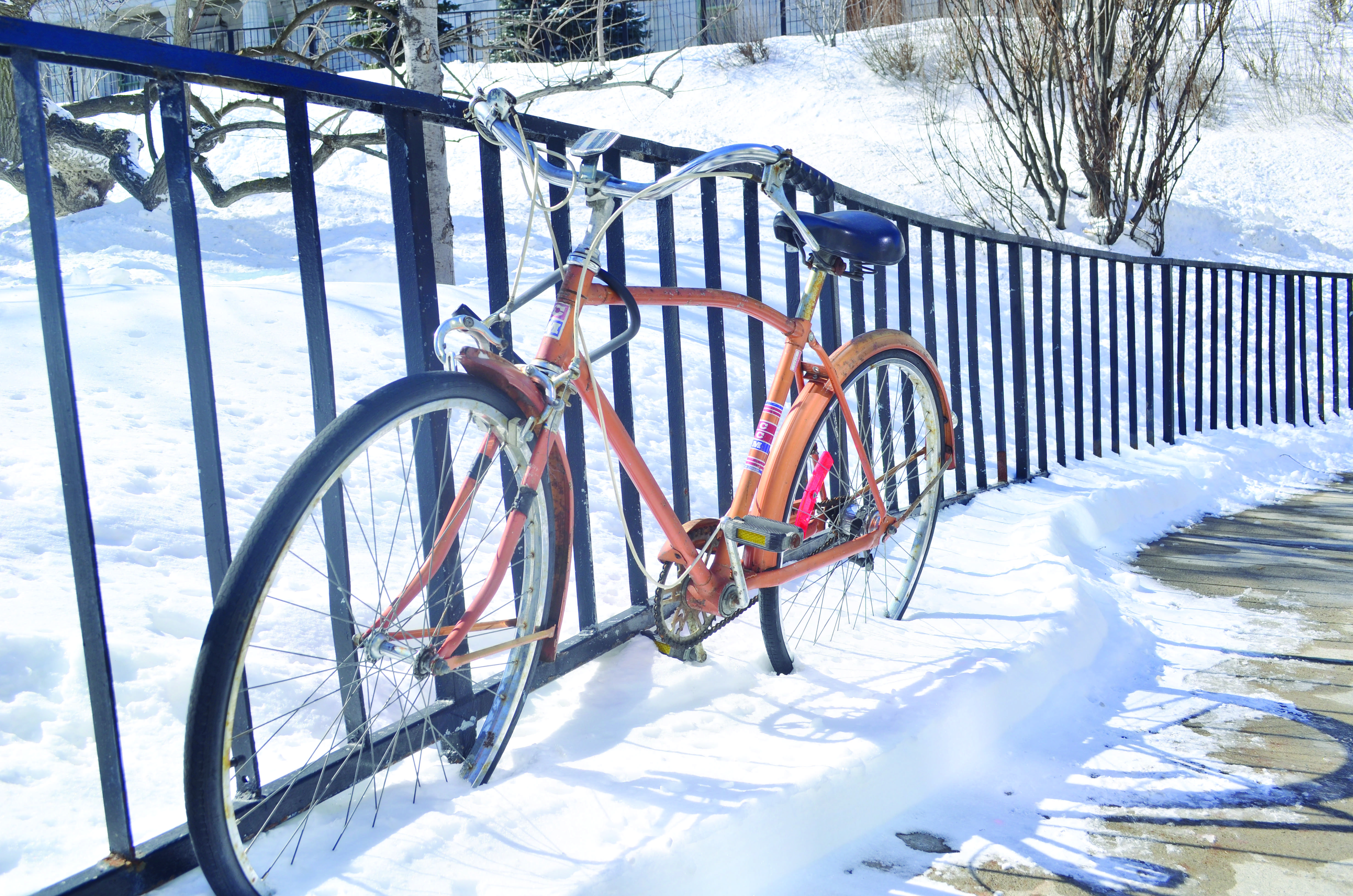Cycling regulations on campus could undergo substantial changes following the work of McGill’s Cycling Working Group, which is scheduled for release in April.
The group was created in order to analyze issues regarding bicycles on campus, with the goal of devising a well-compromised accommodation for cyclists at the university.
Its creation follows widespread criticism of McGill’s current policy to prevent cyclists from using their bicycles on campus—for example, with the Milton bike gates installed at the start of the academic year.
Created in Fall 2013, the group consists of faculty, staff, and student representatives, who are developing recommendations on the subject following deliberation, consultation, and analysis of the current situation.
Martin Krayer von Krauss, manager of McGill’s Sustainability Office and chair of the Cycling Working Group, explained the criteria developed by the group to gauge options for allowing bicycles on campus.
“Must-have criteria [include] pedestrian and cyclist safety, a happy McGill community, affordability, and accessibility,” he said.
Krayer von Krauss said there are several possibilities that could align with these criteria.
“As a group we’ve applied them to three different scenarios,” he said. “[The] first [consists of] variations of a dismount policy on campus, to ensure safety of cyclists and pedestrians [….] The second deals with possibilities of a cycling path on campus [….] The third deals with a shared space approach, rather than segregating cyclists.”
Amanda Winegardner, PGSS representative to the working group stressed the importance of considering sharing of spaces on campus.
“The working group is really interested and has worked hard to consider effective sharing of campus space and inclusiveness,” Winegardner said. “A lot of time has been devoted to the discussion of multiple perspectives and the needs of different populations on campus as well as the external community.”
Harald Kliems, member of the Flat Bike Collective, a McGill student group that teaches bicycle maintenance, said cycling would always be a popular method of transportation on campus and stressed the importance of making decisions around that fact.
“I personally do hope [that] McGill is going to continue to make cycling an even better choice for getting to work,” Kliems said. “McGill already has a comparatively high percentage of its community using sustainable modes of transport to get to school or work—and we should continue to make that even better.”
According to Kliems, bike lanes are often perceived as the solution for cyclist problems, but they might not be the best in all cases.
“[Anyone who has] had a car door open in front of them while in a bike lane [or] navigated between scattered pedestrians on the Place des Arts bike lane probably concedes that [bike lanes] don’t always work well,” he said. “[It’s] important to closely analyze a given location to see if a bike lane is the right tool or if there are other, better solutions.”
Krayer von Krauss noted that the recommendations are still under discussion, but that results would be presented to Robert Couvrette, associate vice-principal university services, in the spring.
“We’re looking forward to releasing our results,” Krayer von Krauss said. “All members have been working extremely constructively to arrive at some recommendations, based on evidence and demographic representations from all areas of the community.”







